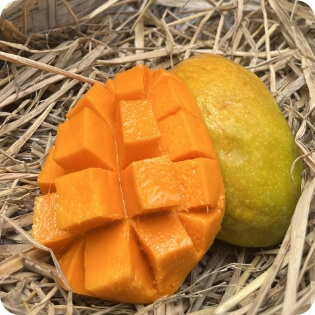MANGO – THE ROYAL FRUIT

The King of fruits is here! The best part about summers is the astonishing variety of mouth-watering natural products in season, mainly and being most loved by all is Mango. The most popular fruit in the world is- Mango. It is a symbol of love and friendship in India. Mangoes are available in so many varieties. Alfonso is the most popular variety of mango.
Nutritional Content Of Mango (100g)
- Calories - 60kcal
- Fats - 0.4g
- Carbohydrates - 15g
- Fiber - 1.6g
- Protein - 0.8g
- Sugar - 14g
Rich In Antioxidants
- Mangos are a good source of protective compounds with antioxidant properties, these plant chemicals include gallotannins and mangiferin. Both have been studied for their ability to counter the oxidative stress associated with day to day living and exposure to toxins. As with other plant foods many of these compounds are found in and just beneath the skin.
Maintains Healthy Hair And Skin
- Mangoes contain reasonable levels of both vitamins A and C. Vitamin C is involved in the formation of collagen – the protein that acts as a scaffold to skin, keeping it plump and firm. Vitamin C is one of the most important antioxidants, playing a protective role against environmental damage; a deficiency of vitamin C can affect wound healing and increase fine lines and wrinkles. Our hair also requires vitamin C both for collagen production and also to help with the absorption of iron – an important mineral needed for hair growth.
Supports Eye Health
- The vitamin A and beta-carotene in mangoes may help boost eye health. The severest cases of vitamin A deficiency can even lead to blindness. Vitamin A improves eye health and vision. Specifically speaking, the vitamin is essential for the optimal functioning of the cornea. The human eye has two major carotenoids such as lutein and zeaxanthin. Fruits of various colors, in general (including mangoes) are a rich source of zeaxanthin and invariably help improve eye health. Mangoes also contain lutein that promotes vision health.
Promotes Brain Health
- Mangoes contain vitamin B6. When taken along with other foods rich in vitamin B6, it may promote brain health. Some research shows that vitamin B6 deficiency could increase the risk of depression and seizures. Mango extracts contain certain principles that may enhance memory. Another Thailand study stated that mango extracts may protect against mild cognitive impairment.
Helps Regulating Diabetes
- evaluating mango leaves found that some plant compounds had a powerful effect when it came to reducing risk factors for diabetes. These included lower body weight, reduced blood sugar levels, and lower levels of fats in the blood. Research shows that functional compounds in the mango peel also have antidiabetic properties.
- They are the national fruit of India, Pakistan, and the Philippines, and for good reason: they’re delicious. As far as nutrition goes, the mango contains a range of vitamins and minerals, though not in particularly high concentrations. That is, with the notable exceptions of vitamin C and folate. Mangoes also contain a range of polyphenols such as flavonoids, a group of compounds that has gained popularity in health food circles over recent years.
Helps Regulating Diabetes
- evaluating mango leaves found that some plant compounds had a powerful effect when it came to reducing risk factors for diabetes. These included lower body weight, reduced blood sugar levels, and lower levels of fats in the blood. Research shows that functional compounds in the mango peel also have antidiabetic properties.
- They are the national fruit of India, Pakistan, and the Philippines, and for good reason: they’re delicious. As far as nutrition goes, the mango contains a range of vitamins and minerals, though not in particularly high concentrations. That is, with the notable exceptions of vitamin C and folate. Mangoes also contain a range of polyphenols such as flavonoids, a group of compounds that has gained popularity in health food circles over recent years.


